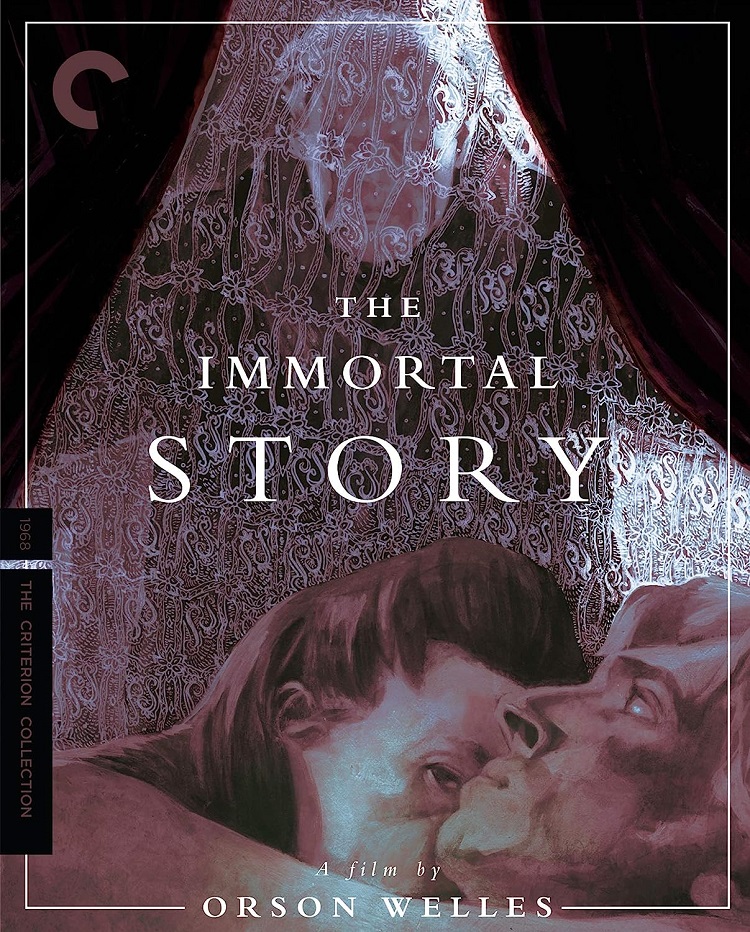
We all knew that Orson Welles was mad, but we also knew that he had the ability to make cinematic works of art that transcend any genre. After his legendary 1941 masterpiece, Citizen Kane, he felt that he could do anything, but after he changed film history with Kane, he started to feel the slump of Hollywood. This is definitely no apparent more than when he made 1948’s flop, The Lady from Shanghai, that kind of signaled the beginning of the end of his gifts as director/writer/actor extraordinaire. However, he made a comeback, a sort-of experimental one, as he started making adaptations of many famous literary works, and only a few of them are as poetic and deft as his 1968 mini masterwork, The Immortal Story.
Adapted from a short story by famous writer Isak Dinesen, the film stars Welles as a super wealthy, but lonely merchant living in Macao, who asks his Jewish clerk to read him stories at night to fill the void of isolation. He soon becomes infatuated with a popular tale of a rich man who pays a small fee to a poor but handsome young man, to make love and impregnate his the man’s young wife. He has the clerk hire a young man and a prostitute to play the main roles as a sailor and the wife, no matter what the consequences may turn out to be.
Clocking in a only 58 minutes, the film can be an acquired taste for many people, and only fans of this certain type of cinema and that of Welles himself may really understand what exactly is going on. But, by an artistic standpoint, this is a marvel of deep emotion and haunting spareness that showcased the fact that Welles lost none of his trademark ability to arouse such techniques of the lines between what is real, and what is make-believe.
Obviously a chamber piece, the acting is remarkably subdued, as Welles performs his part with unusual reservation, letting the ethereal Jeanne Moreau take over as Virginie, the heart of the film. She acts out her character with compelling grace and believably as a woman insecure about aging and bitter about where life has taken her. There were many stories about how Welles was unhappy during the production, and sometimes the film comes across as a little stuffy, especially in the climatic sex scene between Moreau and the sailor. However, it doesn’t ruin the film, but in fact gives it an understated sense of tragedy, considering the fact that this was Welles’ final fictional film.
As usual, Criterion brings out the royal Blu-ray treatment, giving us not only the original English-language version, but also the alternate French version. The supplements include a quite informative and extremely detailed commentary by noted film scholar Adrian Martin; a 1968 documentary directed by Francois Reichenbach and Frederic Rossif called Portrait: Orson Welles, which has multiple interviews with Welles discussing his legendary career and unique viewpoints of life. There is also a new interview with actor Norman Eshley, who played the young sailor; an interview from 2004 with cinematographer Willy Kurant; and a new interview with Francois Thomas, a noted scholar on Welles’ life and films. Rounding out the release is a great new essay by film critic Jonathan Rosenbaum.
I’m going to go out on a limb and say that the film is an engaging experience, that for a few shortcomings, manages to transcend many common cliches by telling a story of lonely individuals trying desperately to connect with each other, if it means destroying themselves in the process. This is a film that deserves to be rediscovered, even if it means multiple viewings to fully appreciate its overall beauty.